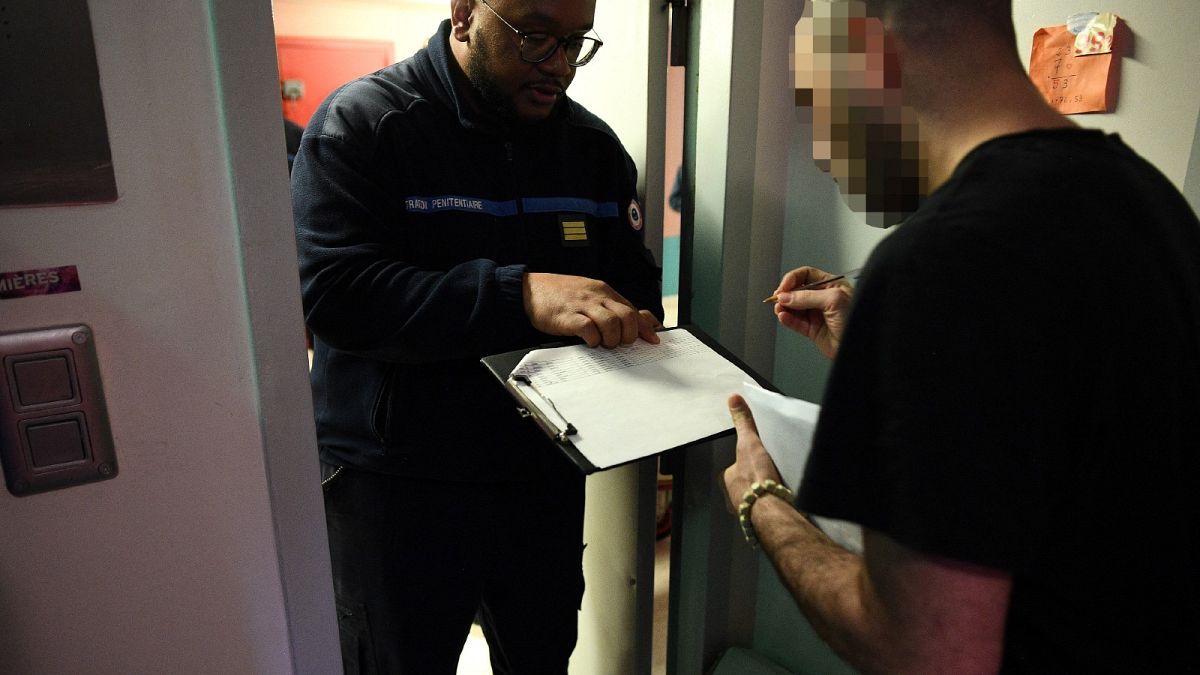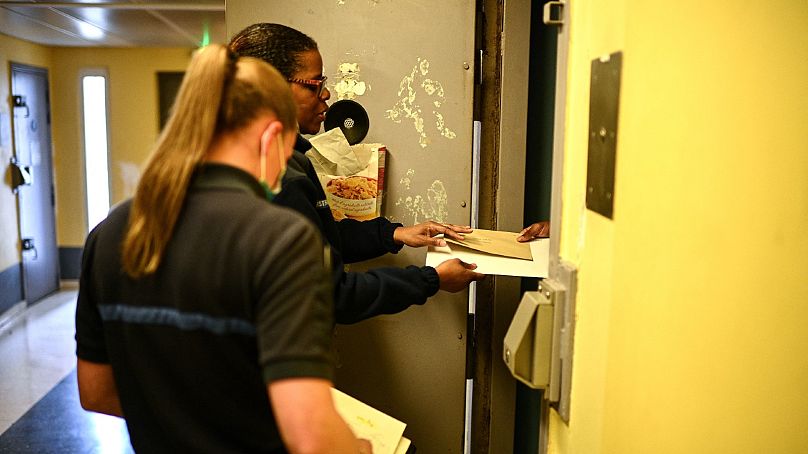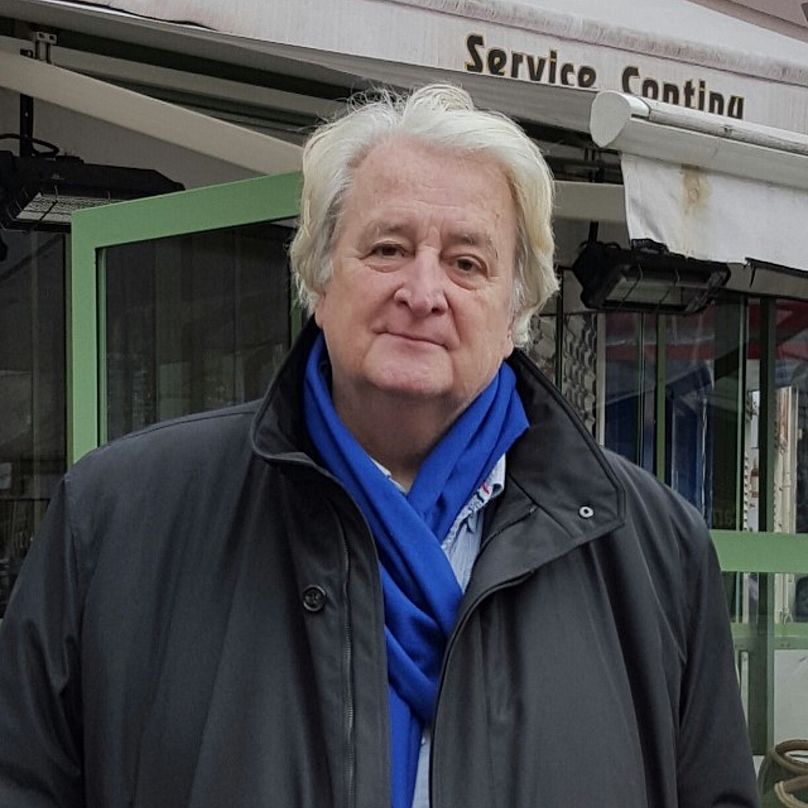It's seen a sharp rise in the number of prisoners voting this time around.
Every Wednesday at noon, at a canteen in the suburbs of Paris, the doors open to let residents know it is lunchtime.
But this week, it was different.
Instead, Stephane and 20 other prisoners went to the gym and waited their turn. When Stephane's name was called, he grabbed some paper ballots and went to the voting booth. He sealed the envelope with the candidate of his choice inside, before waiting for the two words that confirmed the validity of his action: "A voté!" ("Voted!")
Standing in front of the ballot box, Stephane had made history, becoming among the first in the country to vote in a presidential election from inside a prison.
Previously, prisoners in France could ask someone else to vote on their behalf or request to be allowed out to go and vote in person.
But the administrative hurdles were so great, few bothered.
At France's last presidential election in 2017, only 2% of prisoners eligible to vote did so. Of the 1,053 who voted, 853 did so by proxy and 200 obtained an exit permit to go to a polling station. In 2012, only 550 prisoners voted.
This year, more than 13,600 of the 55,000 prisoners eligible voted using mail-in ballots. An additional 2,082 are expected to vote by proxy and or secure exit permits to exercise their right in person on Sunday, according to data from the Ministry of Justice.
Emmanuel Macron announced his intention to make voting more accessible for prisoners in 2018 during a speech on penal reform plans.
"The right to vote must be able to be exercised more simply," he said. "They tried to explain to me why prisoners couldn't vote. I didn't understand."
A year later, mail-in voting was made available in jails, despite it not having been made accessible for the rest of the population.
Although prison voting was Macron’s promise, it was Francois Korber’s fight.
The co-founder of Robin des Lois, an association working for prison reform, he is one of the leading voices in France for incarcerated people’s rights.
Before spending 25 years in prison, Korber was a politician and a graduate of the Lycée Henri-IV, one of France’s most prestigious academic institutions.
But the years that he spent behind bars led him to a years-long battle to fix the system.
Korber first had the idea that the voting system had to be changed in France in 2013. “I had a deep sense of injustice,” he said.
Making voting possible from prison was what motivated Korber after he completed his sentence. He talked to MPs incessantly to make it happen.
It was first trialled in European elections in 2019.
“I was extremely moved when I saw the images of people voting, there was a room and a real vote,” he said. “In a few years, it will become so common that people will say ‘ten years ago, you couldn’t vote,’ and people will be surprised.”
But Korber wants more. In the future, he hopes prisons will be voting centres in their own right, as in countries such as Denmark and Poland.
In France, prisoners' votes are not integrated into the constituencies where they are registered.
Instead, sealed envelopes containing prisoners' ballots are mailed to a single office at the Ministry of Justice in Paris.
Behind bars, prisoners received information about the candidates’ political plans two weeks prior to the election.
But regardless of who they voted for, data on their political choice - global figures rather than individual choices -- may not be available, Korber says.
“Because the system is not established yet,” he says, “the visibility of the votes is limited.” He believes that all votes are sent to the Ministry of Justice to “drown the votes of the prisoners.” The reason behind this, he says, is to prevent prisoners from being linked to a specific candidate.
But a 2020 study published in the Howard Journal of Crime and Justice suggests that “prisoners only partially differ from the general population regarding their political choices”.
This is not the only issue that Korber will try to fix for the next elections. Those who are allowed to vote often don’t know that they can.
“Most come from poor backgrounds or immigrant families and don’t even know that that they are allowed to vote, Korber said about the prison population.
“We don’t know at all whether the system put in place by the new law will make prisoners want to vote again or not.”


